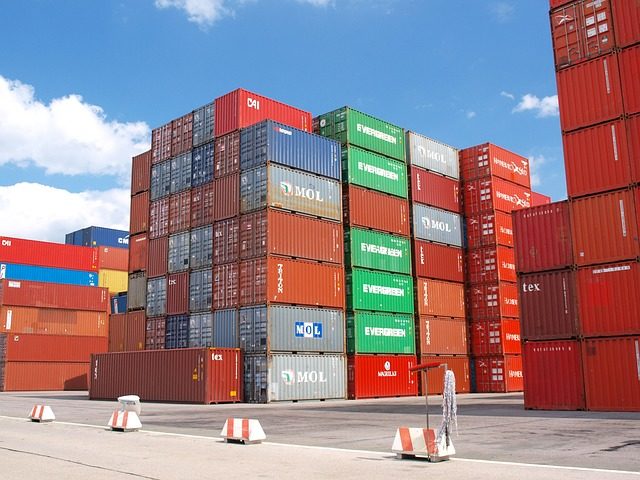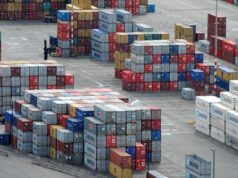
The Philippine Bureau of Customs (BOC) has issued guidelines on the establishment, operation, supervision, and control of customs facilities and warehouses (CFWs).
Customs Administrative Order (CAO) 09-2019 applies to all types of CFWs under the Customs Modernization and Tariff Act (CMTA) and those to be created by the Finance secretary upon the recommendation of the Customs commissioner.
The order takes effect 30 days after August 28.
CFWs are facilities for the temporary storage of goods established and authorized by BOC pursuant to Title VIII (Tax and Duty Deferment, Preference and Exemption), Chapter 2 (Customs Warehouses) of the CMTA. They include container yards (CYs), container freight stations (CFSs), seaport temporary storage warehouses, airport temporary storage warehouses, and other premises, for customs purposes. Other types of CFWs are terminal facilities, off-dock CFWs, off-terminal CFWs, and inland container depots.
To protect government revenues, prevent the entry of contraband, and curtail customs fraud, CFWs also extend to examination areas, cold storages, wharves, infrastructure and other premises where goods subject to customs clearance may be stored, examined, or disposed of. Customs control over these premises, however, is without prejudice to the powers of local government units, Philippine Coast Guard, and law enforcement agencies in the exercise of their respective functions.
CAO 09-2019 states that when the business of the port and trade requires such facilities, the district collector, with the approval of the Customs commissioner, may designate and establish CFWs for the storage and/or clearance of imported goods or for other special purposes.
Existing contracts of private operators with concerned government agencies and regulatory bodies, such as the Philippine Ports Authority, Phividec Industrial Authority, Cebu Port Authority, and their respective affiliates and subsidiaries, are not be impaired or adversely affected in the exercise of the supervisory and regulatory functions of BOC in accordance with the CMTA.
All CFWs, including their expansion, extensions, and additional facilities are considered part of customs premises subject to supervision and control of BOC, which will impose such conditions and other regulations as deemed necessary to protect government revenue, and the stored goods.
Under CAO 09-2019, BOC is not liable for any loss or damage of goods stored in any CFW.
The customs bureau is responsible for issuing an Authority to Operate a CFW, including imposing different sets of requirements for the establishment, maintenance, and operation a CFW, setting forth the rights and obligations of operators, and the penalties for violating these rules.
Operators of terminal facilities with existing contracts granted by PPA and other port authorities will be registered as a CFW, provided they submit their Permit to Operate or equivalent document from their respective port regulators and comply with requirements under CAO 09-2011 “for the effective exercise of customs jurisdictional control over ports, airports, and terminal facilities.”
The Authority to Operate a CFW is non-transferable. In case of a merger, sale, assignment, or other modes of transfer, the surviving entity which is not the grantee of an Authority to Operate issued by BOC must apply for a new Authority.
If the Customs commissioner denies the application to establish a CFW, the applicant may file a letter of appeal to the district collector who denied the application within 15 working days from receipt of the letter of denial, copy furnished the Office of the Commissioner, stating clearly the grounds for the application’s approval.
An Authority to Operate a CFW, including any additional facilities, is valid for three years from the date of approval of application, and shall be renewed at least 90 days before the expiration.
The Finance secretary may, if recommended by the Customs commissioner, create or dissolve certain types of warehouses upon consultation with the National Economic and Development Authority and Department of Trade and Industry based on prevailing economic circumstances. This is without prejudice to existing contracts of private operators with the appropriate government agencies.
The BOC district collector, “in pursuit of its supervisory and control functions over customs premises,” may assign customs personnel at CFWs to monitor and implement control measures for customs purposes, in accordance with its existing organizational structure and staffing pattern.
The Customs commissioner, without prejudice to the rights, conditions, and obligations already acquired or vested prior to the effectivity of CAO 09-2019, may cause the re-evaluation, reclassification, and reorganization of all existing CFWs “to ensure compliance with the requirements and conditions” specified under the new order.
BOC will issue corresponding customs memorandum orders (CMOs) prescribing specific rules and regulations for each type of CFW, as well as the procedure for closing and suspending such facilities.
CAO 09-2019 repeals CMO 37-2015, CMO 32-2015, CMO 30-2015, CAO 05-96, and all other inconsistent rules and regulations. – Roumina Pablo








